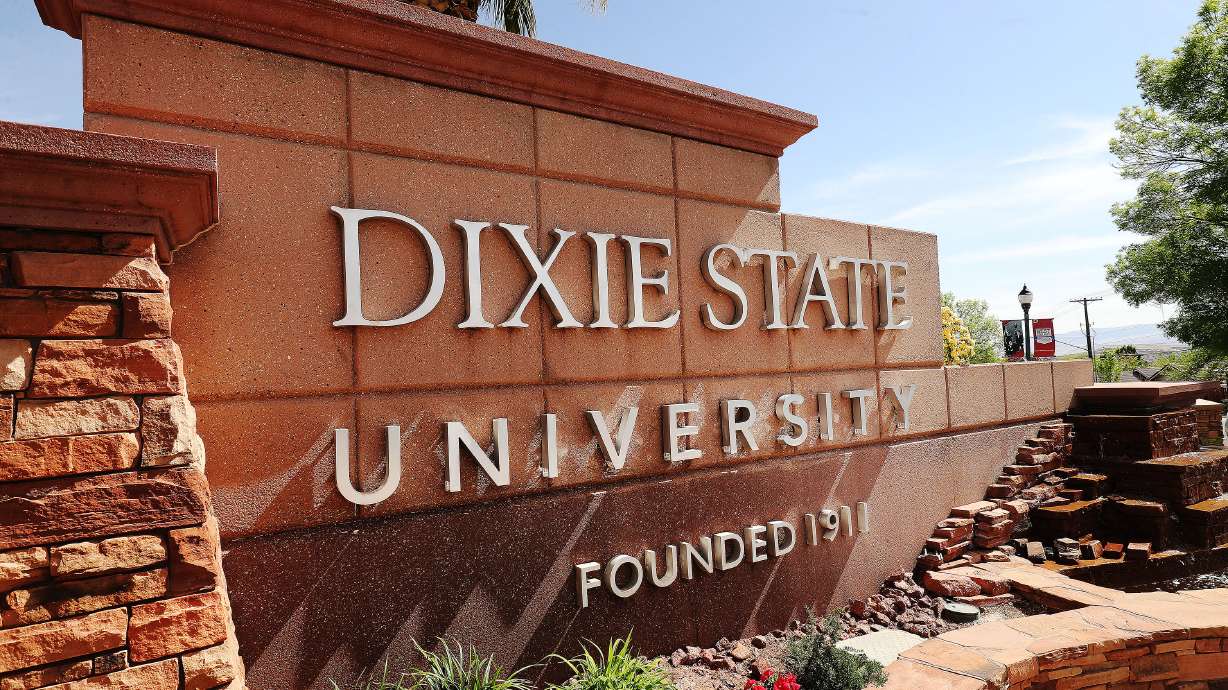Estimated read time: 3-4 minutes
This archived news story is available only for your personal, non-commercial use. Information in the story may be outdated or superseded by additional information. Reading or replaying the story in its archived form does not constitute a republication of the story.
ST. GEORGE — It wasn't the FBI or the CIA that finally took down the infamous Al Capone in 1931. That bragging right belongs to the Internal Revenue Service Criminal Investigation team.
"Most people see that we're titled 'special agent' and they automatically just go straight to FBI and don't know that IRS Criminal Investigation exists and that we have job openings, and what we do and why we're different from other criminal investigative agencies," Casey Hill, a supervisory special agent with the IRS, said.
To spread the word about what IRS Criminal Investigation does — and perhaps recruit the next agent to take down a ruthless mob boss — the agency has formed the Adrian Project. On Thursday, the Adrian Project paid a visit to Dixie State University.
"The Adrian Project is basically an opportunity for the students at the university level to put the skills that they're learning at the university into action in the investigative world," Hill said.
To do this, students participate in a simulated criminal investigation to see how special agents with the IRS trace illicit money from the crime to the criminal. Adding to the sense of reality, students are sworn in as special agents for the day and wear IRS-Criminal Investigation protective vests, use handcuffs, toy guns and radios to communicate with their counterpart agents on the case.
The students sharpen their forensic accounting skills through document analysis, interviewing suspects and conducting surveillance. The simulation is complete when the students have obtained sufficient evidence of the crime, resulting in the arrest of the mock offender.
"It is a lot of fun," said Cindy Greenman, associate professor of accounting at Dixie State.
Greenman, who teaches a forensic accounting class at the university, said that 31 students are set to participate in the Adrian Project in Utah.
Additionally, the simulation is basically a crash course in fraud detection and investigation.
"What would normally take months to investigate, they will go through in about a four-hour process," Greenman said. "They get to use all of the skills they're learning in my classes, so they're putting the pieces of the fraud together."
Even though the simulation is enjoyable for students — Greenman noted that not many students can say they've handcuffed an IRS special agent — it also provides a valuable opportunity for active learning and real-world, hands-on experience that can be hard to come by in the classroom.
"It really develops their critical thinking skills because they have to be able to understand the flow of accounting information, but they also have to think critically of, 'Okay, does this make sense? Is this a piece of the puzzle, or is it not? and 'If it is a piece of the puzzle, how exactly does it fit?'" Greenman said.
Bringing the Adrian Project to schools is also beneficial for the IRS, Hill said, especially considering the agency is looking to hire 10,000 new workers — including more than 1,000 in Ogden — to reduce a significant backlog in tax filings.
"We've kind of been facing a labor shortage for quite a while. And now that the budget has been approved, (it's) actually built into the budget for us to hire quite a few people, and we are hiring a lot of people," Hill said. "Another reason why we're out — a recruiting event."









